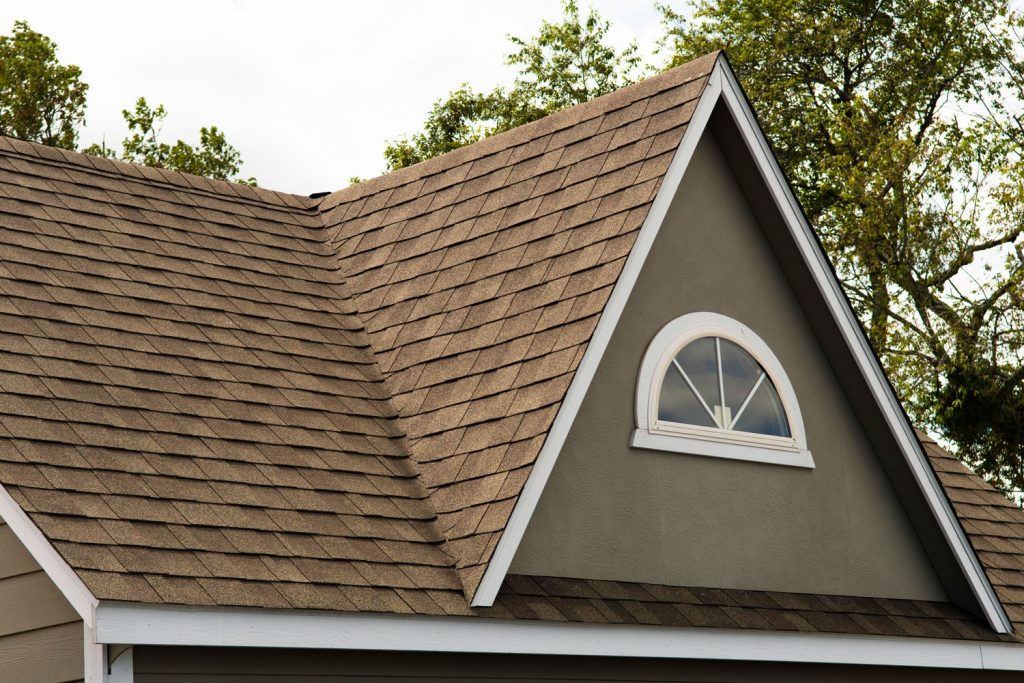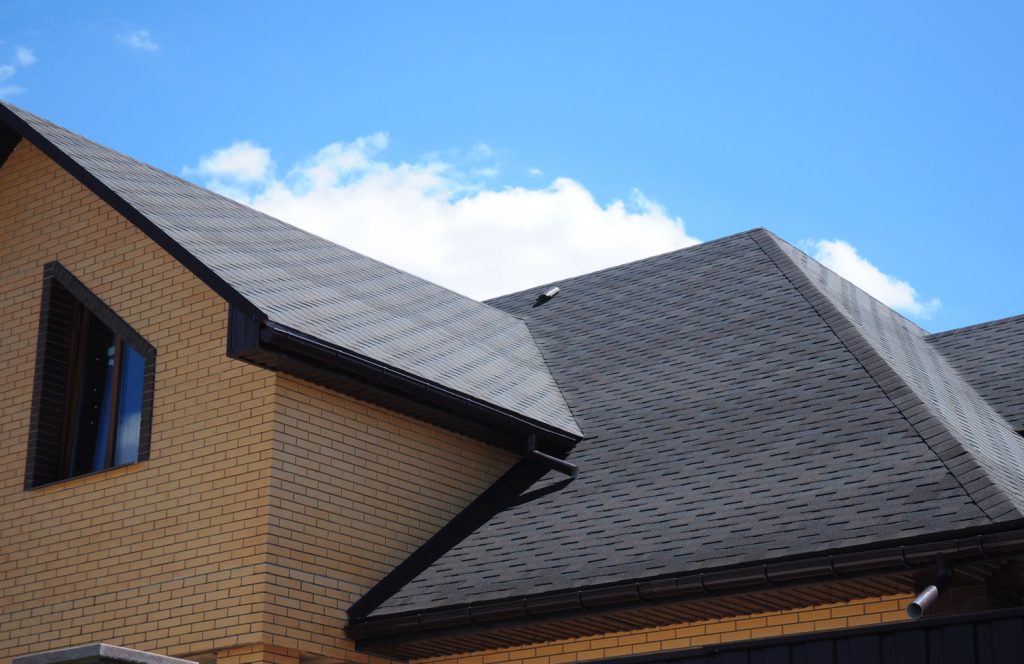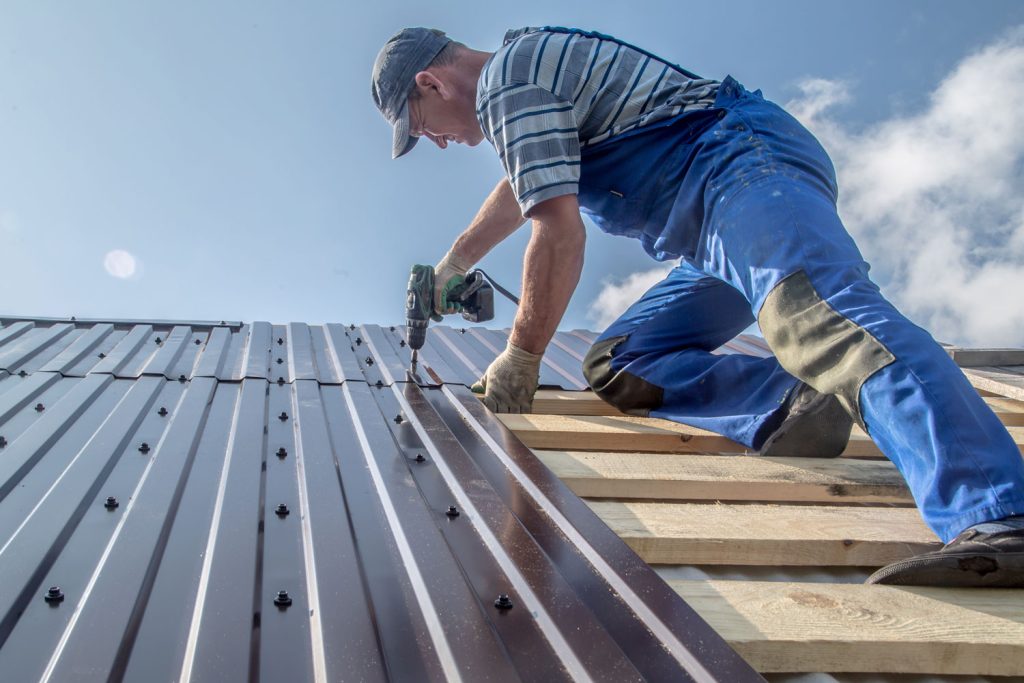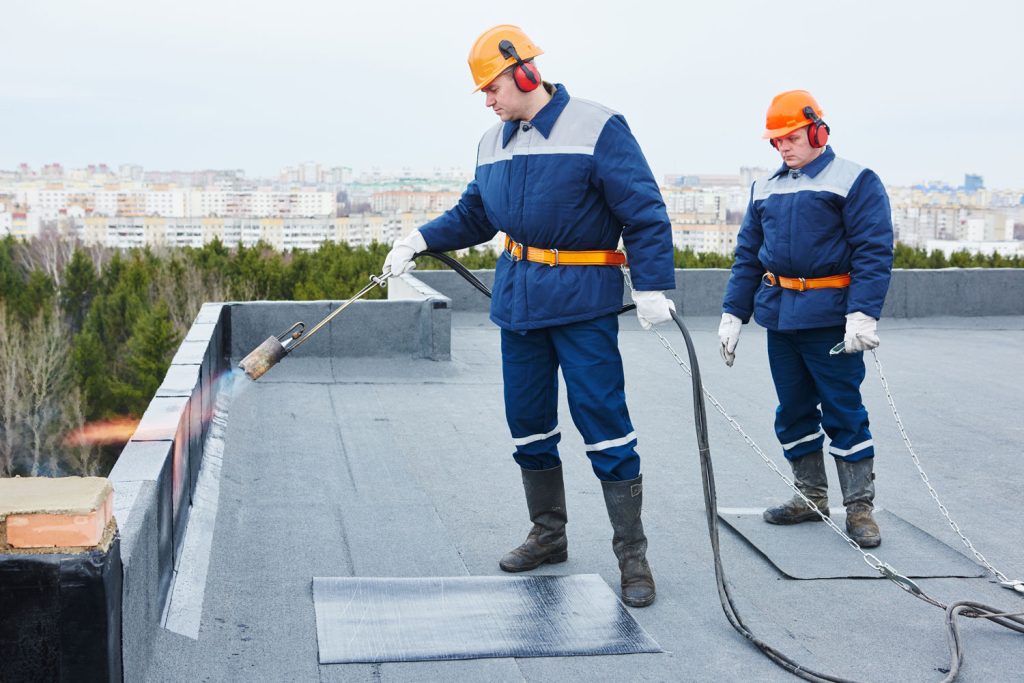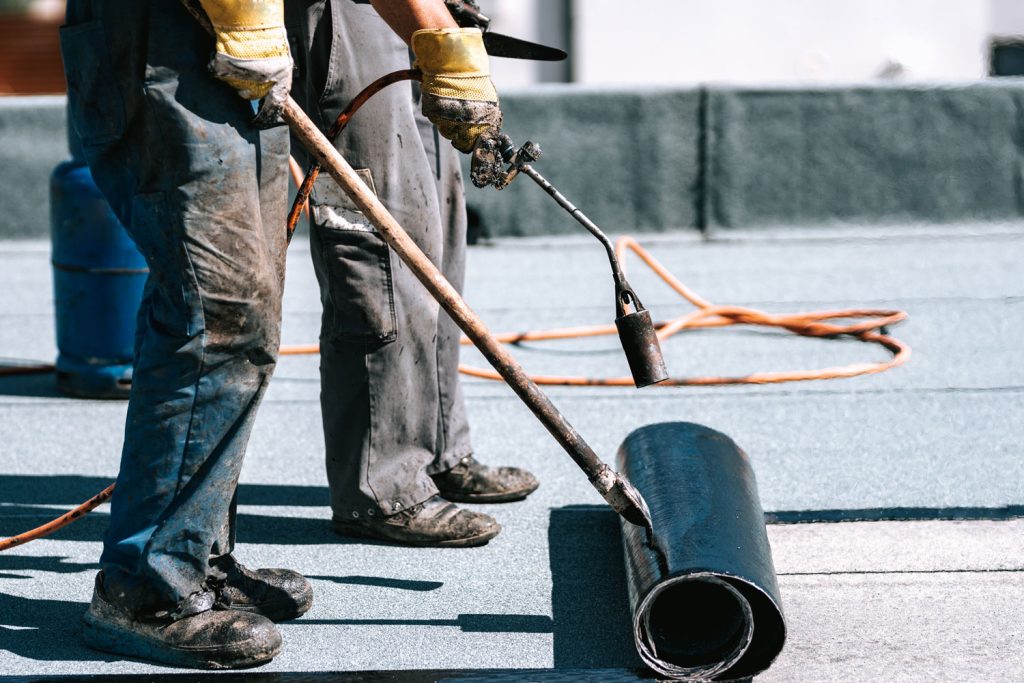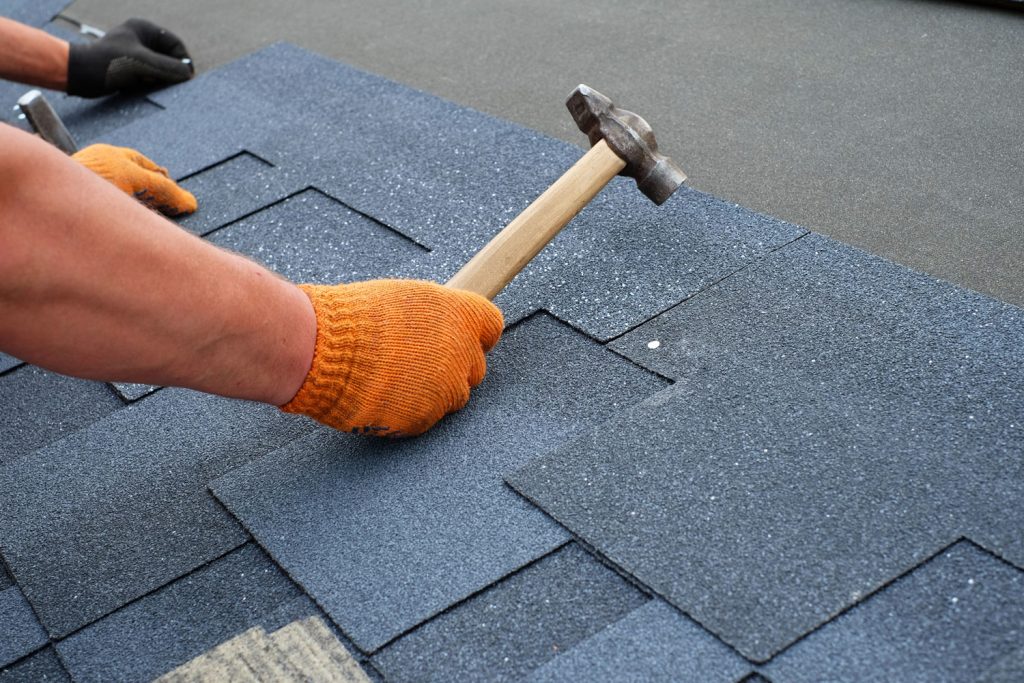From the bitter cold and potentially hazardous winters to precipitation-heavy springs, relentless summer heat, and slipping leaves in the fall, every season influences a roof's longevity in Michigan. There's also the chance of freak events like lightning striking or a tree falling on your roof, which may damage sections or the entire thing.
Still, freak damage is unusual, and if you maintain your roof throughout the year, you can avoid future difficulties and get the most out of it for as long as feasible.
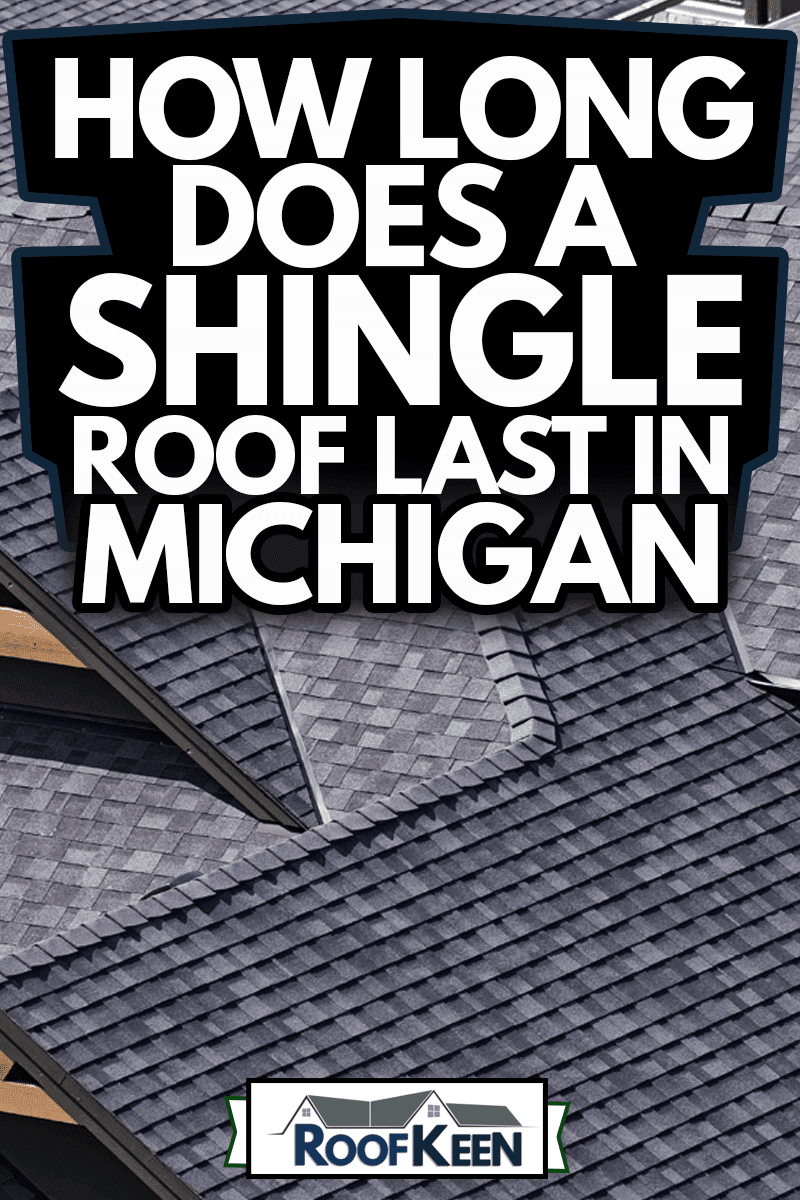
How Long Does a Roof Last on Average?
A roof is a major investment, but it's generally one of the finest home improvements you can make. A new roof installation will save you money in the long run by avoiding expensive repairs from a leaking or damaged roof, and house purchasers will pay more for a home with one.
How long do roofs last in Michigan? Roof lifespans differ depending on the materials used:
Asphalt shingles are the most popular roofing material for houses, lasting on average 16-20 years. Asphalt shingles are long-lasting, versatile (able to be used in a variety of designs and materials), and far less expensive than metal roofs. Because it is inexpensive, easy to maintain, and efficient at keeping heat out of your home year-round, asphalt is the most popular roofing material.
Metal Roofs
Metal roofs have a lifespan of around 40 to 70 years. It's a wide range, but even at the low end, a metal roof will outlast an asphalt roof by two to two and a half times. On the high side, it will endure 3.5 to 4 times as long as an asphalt roof.
You may not expect it, but metal roofs are more costly. Metal roofs are considerably more expensive, yet they offer better energy efficiency, lightweight, and durability over time in all four seasons. Because of their lightweight, aluminum roofs may be affixed over the top of existing asphalt roofs, drastically reducing the expense that would be needed.
Read more: How Long Does a Shingle Roof Last in Texas
Flat Roofs
Flat roofs, like asphalt-shingle ones, have a similar expected lifespan (warranties are generally good for 10-20 years). If properly maintained, they may last up to 25 years. The keys to flat roofs are proper installation and regular maintenance. With flat roofs, avoiding puddles and standing water is especially essential. The majority of leaks are caused by a failure to install flashing correctly and frequently. If you detect any water on your roof, act promptly to prevent future problems. A poor installation will help prevent such issues from happening in the future, as will immediately action if you find a puddle.
How Michigan’s Weather Can Affect Your Roof
We mentioned it earlier, but each year in Michigan has a distinct effect on your roof. The most potentially damaging season is winter; if you don't have adequate insulation and ventilation in your attic, you'll be susceptible to ice dams and icicles, which can result in more significant and expensive damages.
Keeping your roof clear of branches, leaves, and other debris all year, as well as cleaning your gutters at least once a year, will help your shingles last longer in the spring, summer, and fall.
You might want to know: How Long Does a Roof Last
How to Get the Most Value from Your Michigan Roof
Use caution. Make an effort to keep your roof in excellent working order. Check it at least once a year for any indications of larger issues, even if you don't think there's anything wrong with it now. Check for puddles, gutter clogs, loose or damaged shingles, and anything else that appears amiss. Remove fallen tree branches as soon as you notice them, and clear fallen leaves as soon as possible in the fall. Pay particular attention to icicles in the winter and any potential for ice dams.
Another advantage of good maintenance: Roof warranties, while often covering many years, are only valid if you maintain your roof.
The most basic rule when it comes to preserving your Michigan roof is to pay attention to it. Consider it a long-term investment. Keep an eye on it for any problems that may develop in the future.
How often should you replace your roof in Michigan??
It all depends on the condition of your roof. If there are any visible problems, then you should have an inspection done to see how much damage has been done. If there is too much damage, then it may be time to replace it with a new one.
You can have an inspection completed at least once in 5 years or so depending on the type of material being used for your roof. Many different materials can help decrease the life expectancy of your roof including aluminum and steel sheets. The better quality material typically lasts longer than lower quality ones but also costs more money upfront.
After 20 years or so, most roofs need to be replaced entirely - unless they are being regularly maintained by cleaning out debris build-up and doing necessary repairs.
What is the expected lifespan of a roofing shingle in Michigan?
Roofing shingles typically have a life span of approximately 20 years when installed by professionals and maintained regularly. The quality of the material being used for your roof can increase or decrease that number. A high-quality material may last up to 50 years if properly cared for but only 10 years if not regularly maintained.
If you are using asphalt shingles, then they may need to be replaced every 12-14 years because of their exposure to sun, wind, and rain over time. If you live in an area where there are high winds, then it may be wise to use a more durable roofing material that can hold up in high wind conditions.
What does the warranty cover for asphalt shingles in Michigan?
An asphalt shingle roof has a warranty covering most defects and workmanship. However, damage caused by wind or hail is typically not covered by this warranty. It is best to review the details with your contractor before you agree on any work being completed.
The question of how long a shingle roof lasts may be difficult to answer because there are so many variables. The type and quality of the shingles, exposure to extreme weather conditions such as hail or high winds, and frequency with which they’re replaced all go into determining an accurate lifespan for your roof. What we can tell you is that most manufacturers require homeowners to replace their roofs after 10-25 years depending on the warranty provided by the manufacturer.

